MercoPress. South Atlantic News Agency
Economy
-
Friday, April 8th 2022 - 09:55 UTC
Argentina: Wage bargaining cushions margin to fight inflation
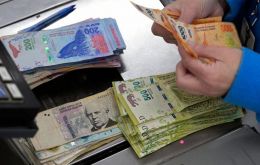
Argentine labor unions are negotiating wage adjustments of around 60% in an attempt to outpace the country's rampant inflation, it was reported in Buenos Aires.
-
Friday, April 8th 2022 - 09:19 UTC
Venezuela's monthly inflation stays within one-digit figures

Venezuela's economic authorities have reported one-digit monthly inflation once again for a country that had grown accustomed to astronomic figures. However, independent observers consider this data to be absurd.
-
Wednesday, April 6th 2022 - 09:47 UTC
Uruguay's ANCAP makes US$ 88 million profit in 2021
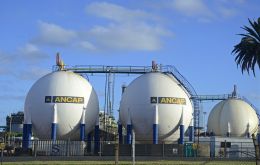
After several adjustments in the price of fuel, Uruguay's state-run oil company ANCAP reaped profits worth US$ 88 million, authorities from the petrol supplier reported Tuesday in Montevideo.
-
Wednesday, April 6th 2022 - 09:32 UTC
Paraguay advised to monitor inflation and tackle State spending
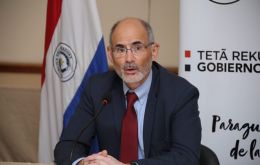
The International Monetary Fund (IMF) has issued a recommendation to the Government of Paraguay IMF to keep an eye on inflation and move forward with structural reforms in addition to improving State spending.
-
Tuesday, April 5th 2022 - 20:10 UTC
Greece pays up IMF financial bailouts
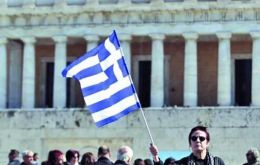
Greece has paid up its debt with the International Monetary Fund (IMF) after three assistance programs amounting to US$ 35 billion between 2010 and 2015, it was reported Tuesday.
-
Tuesday, April 5th 2022 - 09:36 UTC
Bolsonaro still unable to find new Petrobras chief
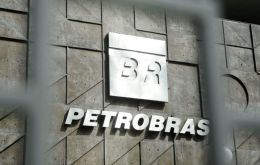
Brazilian Economist Adriano Pires has turned down President Jair Bolsonaro's offer to chair the state-run oil company Petrobras after dismissing General Joaquim Silva e Luna, who repeatedly adjusted the price of fuel against the head of state's recommendations.
-
Saturday, April 2nd 2022 - 09:55 UTC
Argentina focused on ties with US
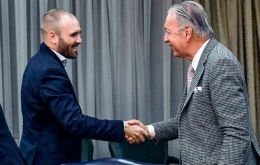
Argentina's Economy Minister Martín Guzmán met Friday with US Ambassador Marc Stanley at the Treasury Palace in Buenos Aires to discuss the bilateral agenda regarding cooperation between the two countries.
-
Saturday, April 2nd 2022 - 09:50 UTC
Uruguayan exports grow 28% in March of 2022

Uruguay's exports rose 28% in March of 2022 when compared to the same month last year, according to the Uruguay XXI report released Friday in Montevideo, which took into account figures from duty-free trade zones. Beef was once again the star product.
-
Saturday, April 2nd 2022 - 09:45 UTC
IMF chief warns on consequences of the Russia/Ukraine conflict for poorer countries

IMF chief Kristalina Georgieva fears that the current situation with the Russia/Ukraine conflict could lead to an explosive situation in many of the poor countries with inflated prices, less jobs and overwhelming debts and called for greater global cooperation.
-
Friday, April 1st 2022 - 22:16 UTC
Brazil's Central Bank workers go on indefinite strike

Employees of Brazil’s Central Bank (BCB) Friday went on strike to demand better wages. The workers have announced that their measure will continue until an answer has been achieved. The new circumstances affect local payments and other services, it was reported.
